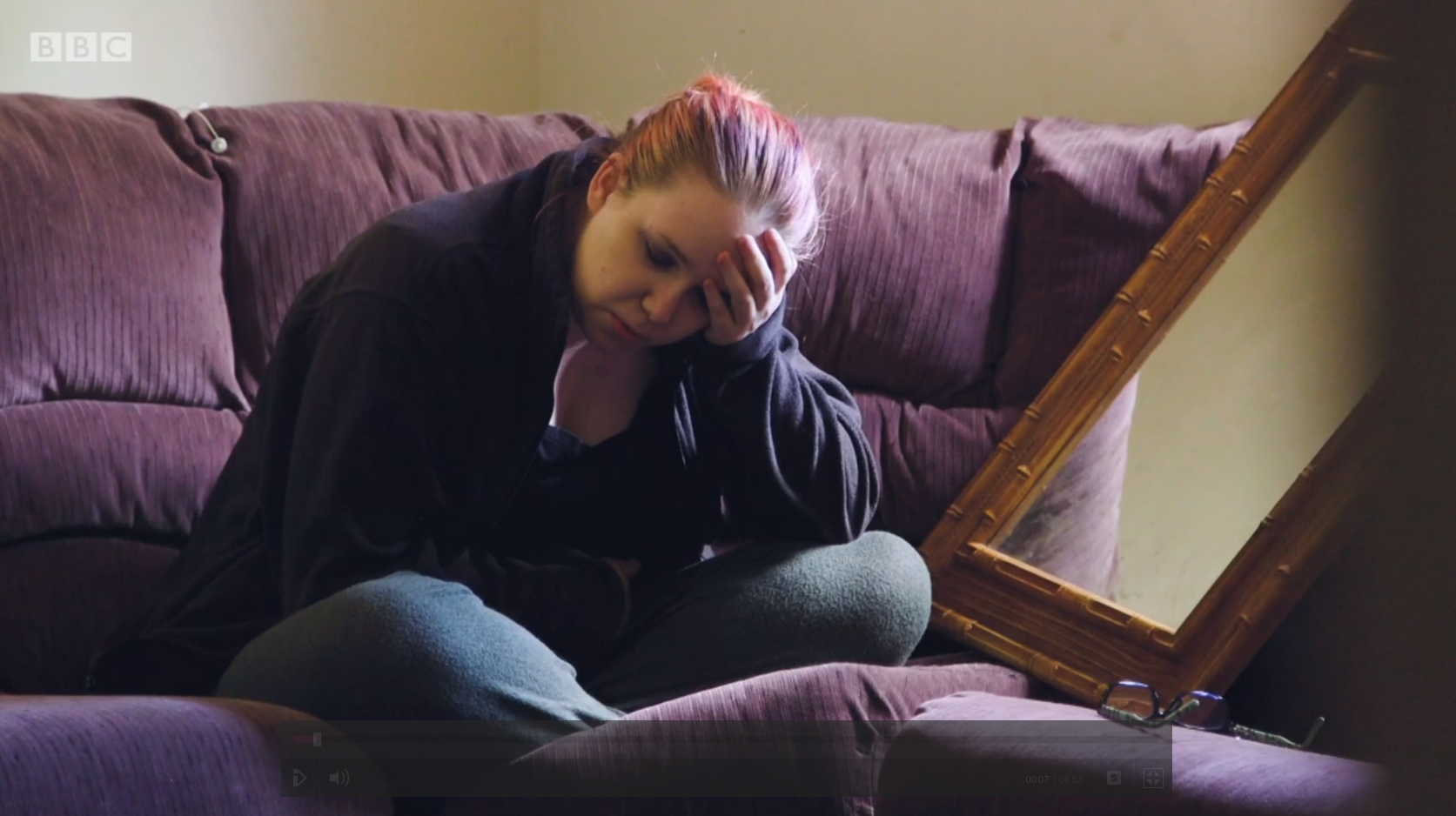PGAD: The rare condition that means you're constantly sexually aroused
'It feels like you’re about to orgasm and then it never goes away'

A young woman has spoken out about what it's like to suffer from a very rare condition that meanss she's constantly sexually aroused, which brings a lot of pain and discomfort.
23-year-old Amanda McLaughlin was diagnosed with persistent genital arousal disorder (PGAD) in 2013.
“It’s not fun to be aroused all the time,” Amanda says in a BBC Three documentary. “It feels like you’re about to orgasm and then it never goes away. Would you want to have a raging boner 24/7? I don’t think so. It’s just non-stop.”
In the programme, Amanda reveals how she first started noticing something was different aged 13 or 14, but neither she nor her mother knew what was happening.
Aged 15-18, she says she masturbated “way more than a normal teenager would.”
Amanda’s whole family thought she was addicted to sex, and her mother still feels guilty about how she treated her daughter, thinking she was just a hypochondriac.
And Amanda now says that if she could go the rest of her life without orgasming, that would be “fine.”
She doesn’t leave her house much, and some days are better than others.
When her family found out Amanda had PGAD they all felt a huge sense of relief, finally giving Amanda validation and an explanation.

A year ago, Amanda met her fiancé JoJo, and the couple now live together. “It was love at first sight,” says Amanda.
But she doesn’t like having to beg him for sex because it makes her feel undesirable.
What’s more, having sex doesn’t always make the pain go away, and JoJo still wants sex to feel special, rather than a chore.
Amanda now takes 30 different medications every day to try and ease her pain, as well as alternating between sitting on heat pads and ice pads.
She’s also receiving treatment from experts.

There’s been very little research in PGAD, and Dr Priyanka Gupta, assistant professor of neurology at Michigan University, says: “We don’t know exactly what causes it.”
They’re going to try a few different therapies with Amanda.
She believes her whole life would be different if she didn’t have this problem: “I might be able to work, I might be able to drive, I want kids in the future,” she says.
Despite the way PGAD is often portrayed, there is no pleasure in PGAD. It is more common in women than men, who feel constantly on the edge of an orgasm they can never quite reach. This manifests itself in pelvic pain and a feeling of genital congestion.
Many women suffering from PGAD have to avoid certain triggers, which can include everything from bumpy car journeys to inserting a tampon.
Sometimes the condition doesn’t appear till menopause, other women, like Amanda, develop it when they hit puberty.
There is no one treatment for PGAD, and different doctors will prescribe different therapies.
At the moment, treatment mainly focuses on symptom management, but it’s a condition that’s incredibly difficult to live with.
Many sufferers feel they can’t be open about their condition, even with close friends.
Like Amanda, they believe there needs to be more research into PGAD. But what sufferers really want people to know is that it’s a pain disorder, rather than a sexual one.
Join our commenting forum
Join thought-provoking conversations, follow other Independent readers and see their replies
Comments
Bookmark popover
Removed from bookmarks